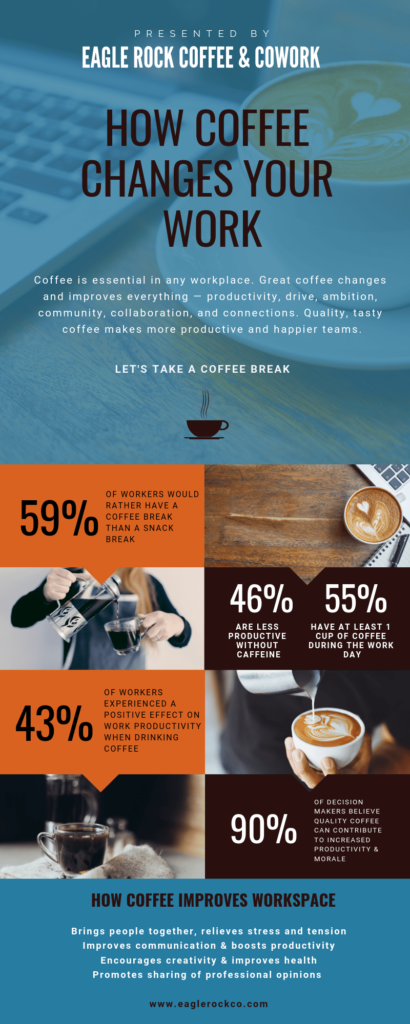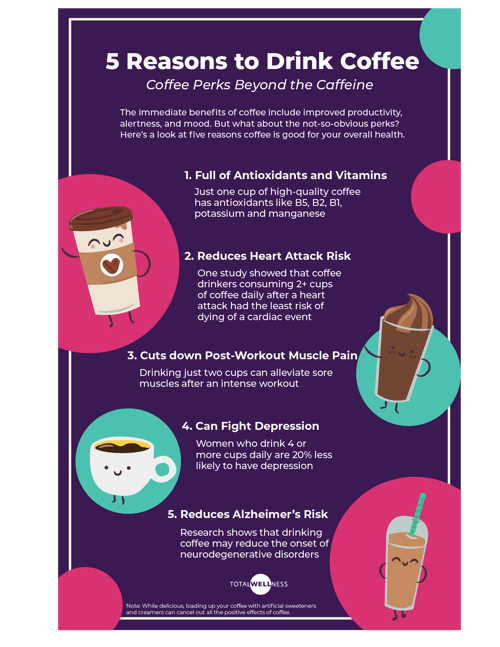Have you ever wondered why your daily dose of caffeine might not be giving you the productivity boost you hoped for? From your morning coffee to that mid-afternoon energy drink, it’s easy to rely on caffeine to help propel you through your day. But what if I told you that caffeine might actually be working against you, reducing your overall productivity?

The Science Behind Caffeine
What Is Caffeine?
Caffeine is a natural stimulant, most commonly found in coffee, tea, soft drinks, and chocolate. When consumed, it works by blocking the inhibitory neurotransmitter adenosine in the brain, which usually makes you feel tired. This blockage leads to the increased production of other neurotransmitters like dopamine and norepinephrine, making you feel awake and alert.
How Caffeine Works
When caffeine enters your bloodstream, it quickly makes its way to the brain. There, it inhibits adenosine receptors, which are responsible for promoting sleep and relaxation. By blocking these receptors, caffeine prevents you from feeling sleepy and can temporarily enhance your focus and alertness. However, this comes with a caveat that we’ll explore further.
Short-Term Benefits of Caffeine
Increased Alertness
One of the most noticeable effects of caffeine is increased alertness. Many people turn to a cup of coffee in the morning to wake up and feel more focused. There is nothing wrong with seeking a little morning boost, especially when you’re feeling groggy.
Enhanced Physical Performance
Caffeine has been shown to improve physical performance. Athletes often use caffeine supplements to help enhance endurance and reduce feelings of fatigue. If you’re trying to fit in a workout after a long day, a caffeinated beverage might help you power through your session.
Improved Short-Term Memory
Studies have suggested that caffeine can boost short-term memory. This can be useful in situations where you need to absorb information quickly or react to a specific situation, such as during an important meeting or an exam.
The Hidden Costs of Caffeine
Caffeine Dependency
One major downside to regular caffeine consumption is the potential for dependency. Over time, your body can become reliant on caffeine to maintain normal function. This means you’ll need more caffeine to achieve the same effect, leading to increased consumption and potential withdrawal symptoms if you miss a dose.
| Symptoms of Caffeine Dependency | Description |
|---|---|
| Headaches | Throbbing pain becoming more pronounced |
| Irritability | Increased agitation and mood swings |
| Fatigue | Overwhelming tiredness when caffeine wears off |
| Difficulty Concentrating | Trouble focusing without caffeine |
Impact on Sleep Quality
While caffeine makes you feel more awake in the short term, it can have a detrimental impact on your sleep quality. Consuming caffeine in the late afternoon or evening can interfere with your ability to fall asleep and may reduce the overall quality of your sleep. Poor sleep can lead to reduced cognitive function and lower productivity the next day.
The Anxiety Factor
For some individuals, caffeine consumption can lead to heightened anxiety. It can increase heart rate and cause jitteriness, making it difficult to focus on tasks. If you already struggle with anxiety, caffeine can exacerbate your symptoms making it harder to maintain consistent productivity throughout the day.
The Productivity Paradox
Short Bursts vs. Sustained Productivity
While caffeine can provide short bursts of energy and focus, it often fails to sustain long-term productivity. The initial boost is usually followed by a crash, leaving you feeling more tired than before. Instead of steady performance, you might find yourself swinging between highs and lows, making it hard to maintain a consistent output.
Multitasking Mishap
Caffeine can sometimes make you feel overconfident, leading you to take on more tasks than you can handle. This overconfidence can result in multitasking, which is generally less efficient and effective than focusing on one task at a time. You might find that you’re more scattered and less capable of completing your work efficiently.
Impact on Decision-Making
Studies suggest that caffeine can negatively impact decision-making skills. The stimulant effect might make you more prone to impulsivity, leading to rash decisions that you might not make otherwise. In a productive work environment, thoughtful and well-considered decisions are crucial, and excessive caffeine can compromise this ability.

Sustainable Alternatives to Caffeine
Hydration is Key
Staying hydrated can have a significant impact on your energy levels and overall productivity. Water helps in the regulation of body temperature, keeps joints lubricated, prevents infections, and keeps organs functioning properly. When your body is hydrated, you will naturally feel more alert and focused.
Balanced Diet
A balanced diet rich in fruits, vegetables, lean proteins, and whole grains can provide you with sustained energy throughout the day. Nutrient-dense foods can help maintain stable blood sugar levels, preventing the energy crashes often associated with caffeine consumption.
| Food Groups | Examples |
|---|---|
| Fruits and Vegetables | Berries, spinach, broccoli, oranges |
| Proteins | Lean meats, beans, nuts, tofu |
| Whole Grains | Brown rice, quinoa, whole wheat bread |
| Healthy Fats | Avocados, olive oil, seeds |
Regular Exercise
Incorporating regular physical activity into your routine can help boost your energy levels and productivity. Exercise increases blood flow to the brain and releases endorphins, which can help improve your mood and focus. Even short, regular breaks for physical activities like walking or stretching can make a significant difference.
Mindfulness and Relaxation Techniques
Practices like mindfulness, meditation, or even deep-breathing exercises can help reduce stress and improve your focus and productivity. Taking time to center yourself can counterbalance the need for caffeine, leading to more sustained and effective work patterns.
Understanding Your Personal Limits
Know Your Caffeine Tolerance
Understanding your body’s tolerance to caffeine can help you manage its consumption more effectively. Start by keeping a diary of when and how much caffeine you consume and note the effects it has on you. This way, you can identify patterns and determine your optimal caffeine intake.
Listen to Your Body
Your body sends signals when something isn’t right. Pay attention to how you feel after consuming caffeine. Are you anxious, jittery, or experiencing stomach issues? These might be signs that your body is not handling caffeine well, and it might be time to cut back.
Setting Limits
If you choose to continue consuming caffeine, set specific limits for yourself. Try not to consume caffeine after a particular time in the afternoon to prevent it from interfering with your sleep. Establishing boundaries can help you enjoy the benefits of caffeine without the associated productivity pitfalls.

When to Seek Professional Advice
Medical Conditions
Certain medical conditions, such as anxiety disorders, GERD, or heart issues, can be exacerbated by caffeine consumption. If you have any of these conditions, it’s wise to consult a healthcare professional about your caffeine use.
Psychological Well-being
If you find that caffeine is significantly affecting your mental health, causing severe anxiety, depression, or other issues, it might be time to seek professional advice. Mental health professionals can offer strategies and alternatives to help you manage your productivity without relying on caffeine.
Personalized Nutrition Plans
Registered dietitians or nutritionists can help create a personalized nutrition plan that meets your needs while minimizing your reliance on caffeine. They can provide tailored advice to help you maintain your productivity in a healthy, sustainable way.
Practical Tips for Gradually Reducing Caffeine
Cut Back Slowly
Gradually reducing your caffeine intake can help minimize withdrawal symptoms. Start by cutting back a small amount each day or week until you reach your desired level of consumption. This gradual approach is less likely to cause the headaches and fatigue associated with sudden withdrawal.
Replace with Healthier Alternatives
Look for beverages that can substitute your caffeinated drinks. Herbal teas, decaffeinated coffee, or even just hot water with lemon can be good alternatives. These options can offer a comforting ritual without the stimulating effects of caffeine.
Focus on Quality Sleep
Improving your sleep hygiene can naturally reduce your dependency on caffeine. Try going to bed and waking up at the same time every day, creating a relaxing bedtime routine, and ensuring your sleep environment is conducive to rest. Good sleep can drastically improve your productivity and reduce the need for caffeine.
Social Support
Sometimes, the habits surrounding caffeine consumption can be tied to social activities, like grabbing coffee with friends or colleagues. Try to find new activities to share, such as walking meetings or having a chat over a healthy snack. Support from your social circle can make it easier to reduce your caffeine intake.

Conclusion
While caffeine can offer temporary boosts in alertness and focus, it’s important to be aware of its potential drawbacks on productivity. The dependency, impact on sleep, and increase in anxiety are significant factors that can undermine the short-term benefits. By understanding the science behind caffeine and exploring healthy alternatives, you can maintain, or even enhance, your productivity without relying on this ubiquitous stimulant. Seek to understand your personal limits and consider professional advice if necessary. Taking small, manageable steps to cut back can lead to lasting improvements in both your productivity and overall well-being.
